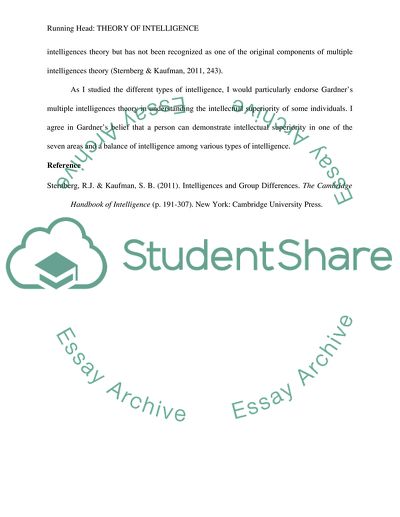Theory of Intelligence Essay Example | Topics and Well Written Essays - 250 words. Retrieved from https://studentshare.org/psychology/1580953-theory-of-intelligence
Theory of Intelligence Essay Example | Topics and Well Written Essays - 250 Words. https://studentshare.org/psychology/1580953-theory-of-intelligence.


